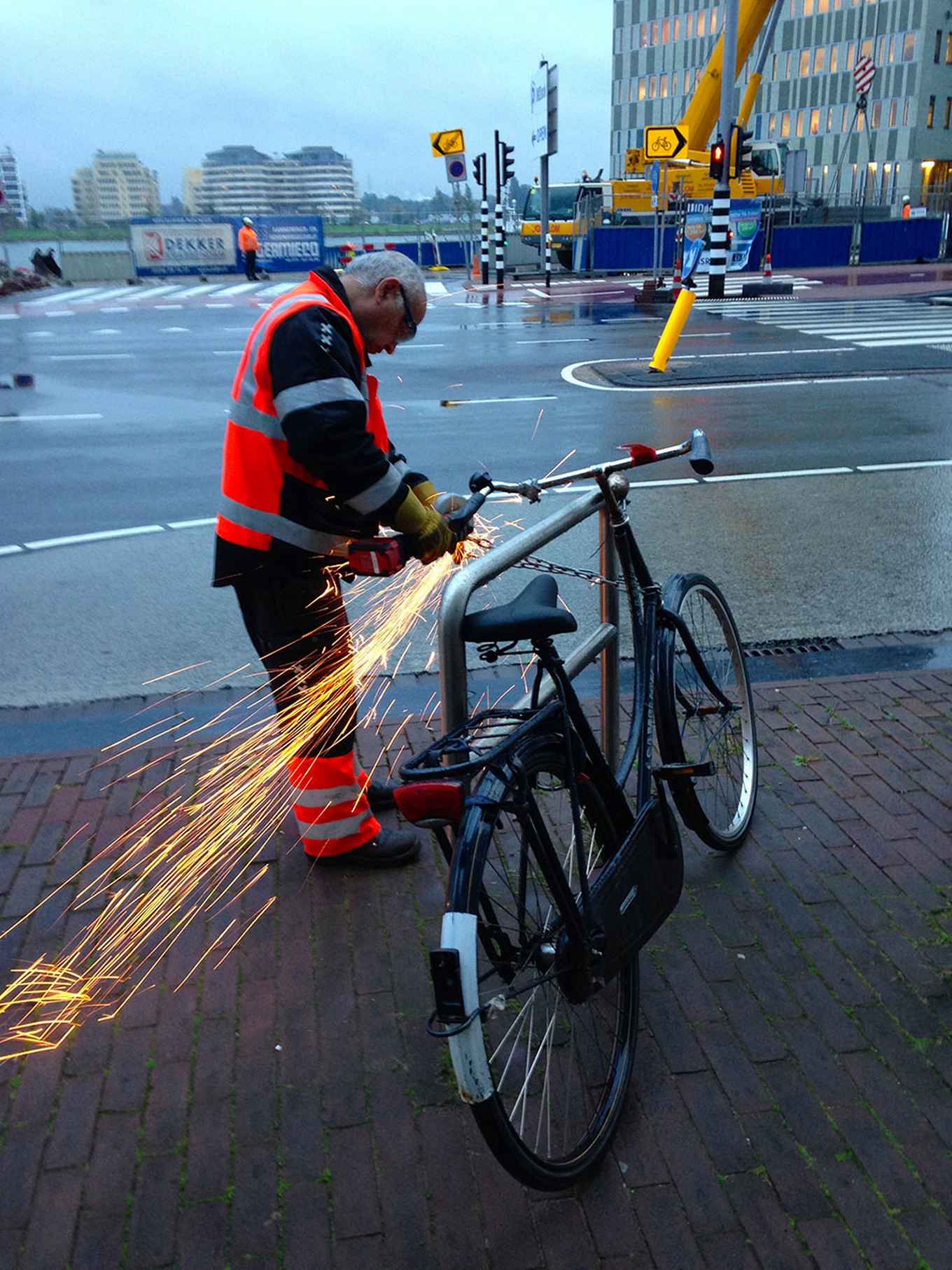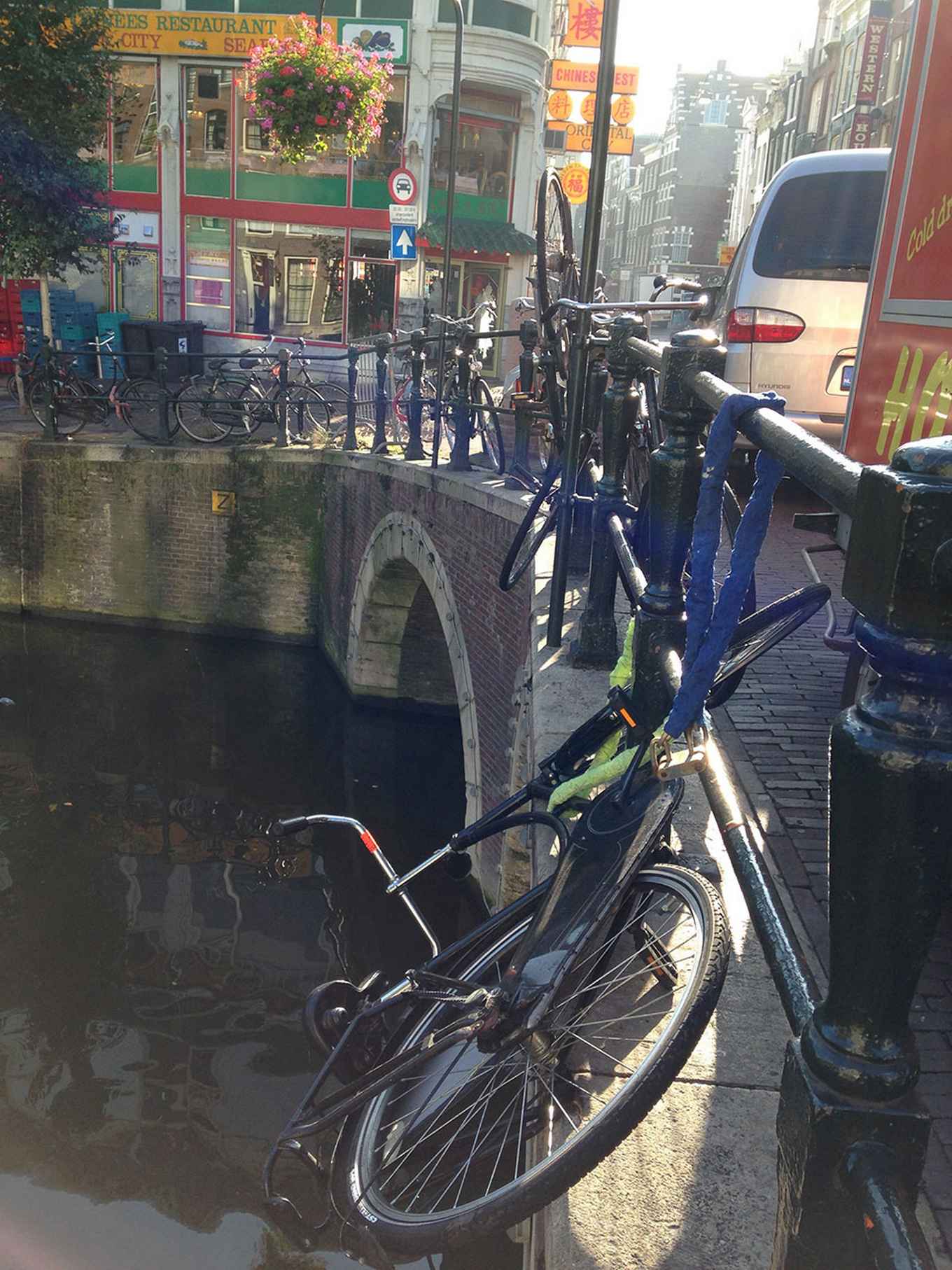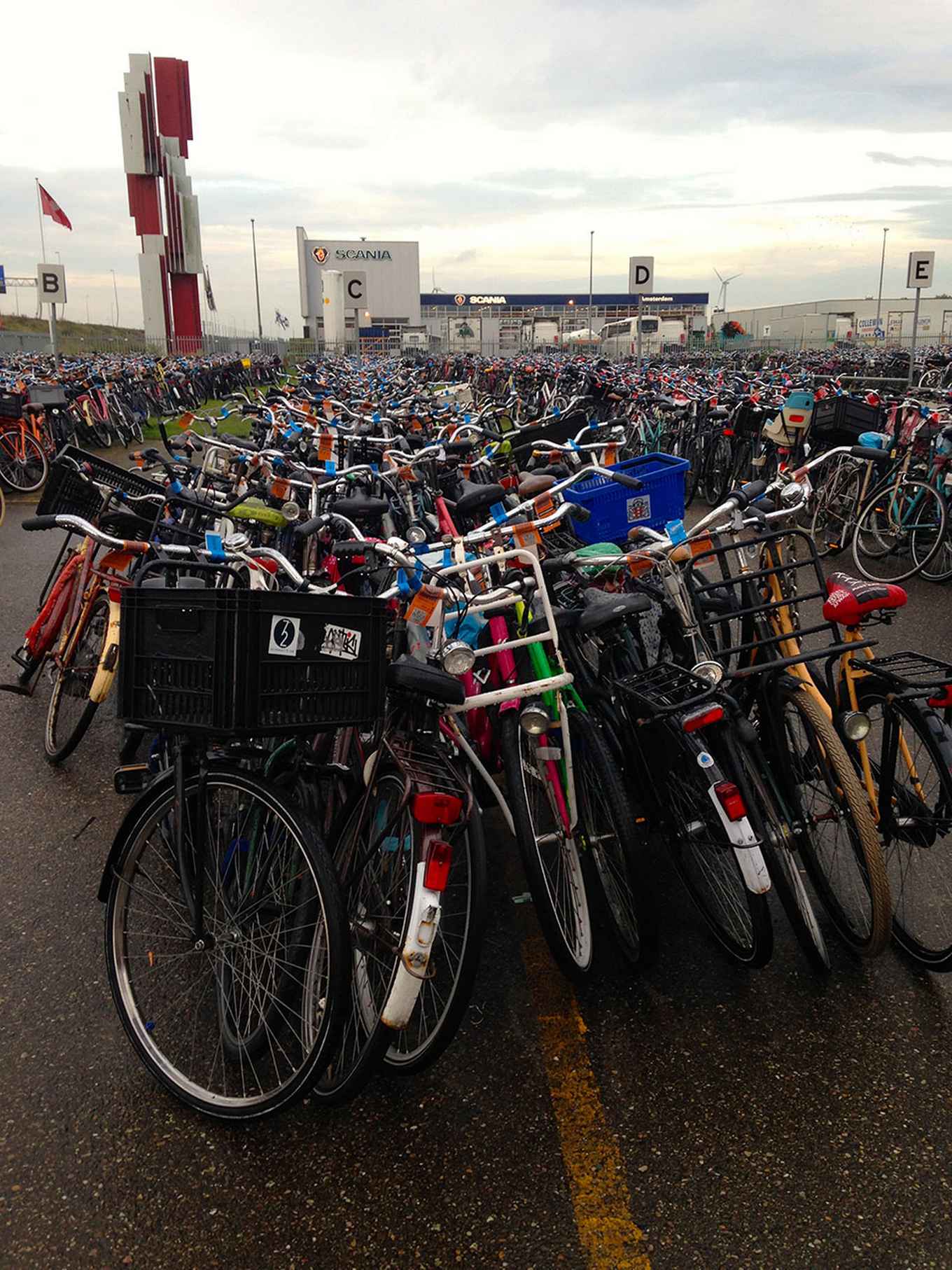The battle of the ‘orphan-bike’: a citizen participation tragedy in Amsterdam - By Nanke Verloo
Publication date 10-02-2014

The love people of Amsterdam have for their own bike is closely related to the hatred they cherish for the bike habits of others. Swaying tourists in the middle of the street, people who actually stop in front of red traffic lights, and overflowing bicycle-stands seem to be nuisance number one of the Amsterdam inhabitant. In the red light district, the latter has recently led to an ambitious ‘citizen initiative’ that seeks to help the city’s cleaning department with the battle against deserted ‘orphan-bikes’.
Politicians of the central borough were eager to engage citizens in ‘participation projects’ and keenly picked up on the initiative. Neighbours were matched with city cleaners “Hilal” and “Benny” who taught them the intricacies of the bike cleaning craft. The civil servants worked with clear rules: a bike should have at least two defects – flat tires, broken breaks, torn saddle – to be defined as an orphan-bike. Once deemed an orphan, the bike would be marked with a red sticker and a tie-wrap through the wheel. If the tie-wrap and the sticker remained untouched for two weeks, the bike could be removed.
For five days the neighbours and civil servants roamed the neighbourhood’s streets. Soon, however, they faced a conflict. The neighbours wanted to sticker more bikes than Benny and Halil thought necessary. Some bikes might not apply to the regulation of at least two defaults, but the neighbours knew they were parked there for months already! That local knowledge was not enough to deem a bike an orphan. After all, the neighbours did not have the mandate to decide about other people’s property.

The neighbours turned to local politicians to share their grievances. In turn for their participation they demanded a say in the management of bike cleaning. They even came with recommendations of how to make the process more efficient. At first, the city government was in shock, “citizens are not in charge of the way we organize our public services!” But the prospect of a ‘citizen participation failure’ caused politicians to temporarily set aside their ‘rule fetishism’ and experiment; the four citizens would get a mandate to appoint orphan-bikes in their neighbourhood.
Sadly, that courageous act of the politicians had an unexpected effect. The bike cleaners who for over ten years cleaned the city’s streets responded; “we are the experts, we recognize an orphan-bike from a mile distance, how can they give citizens our job without any experience or training?!” In their well-intended act to acknowledge the enthusiasm of active citizens, politicians forgot to give their own cleaning staff recognition for their expertise.

The confusion grew even bigger when two weeks later, Halil and Benny were ordered to take away the bikes the neighbours had stickered. Citizens expected a swift cleaning day, but nothing could be further from the truth. Every single bike became the object of discussion. What was supposed to be a day of happy citizenship turned into a day of unhappy quarrels, growing frustration, and disappointment.
A good idea on paper became a disillusion in practice. Citizenship is ‘the stories that unfold at the street-level’. Engagement and acknowledgement, the success of civil participation hangs in the balance, for citizens as much as for street-level bureaucrats.
Nanke Verloo
Nanke Verloo is currently finishing her PhD in which she looks at conflict as an opportunity for urban democracy. She lectures at the department of political science. Follow me @NankeVerloo
This blog is based on research I did for the city of Amsterdam. The interactions described in this blog are only a small part of a longer process the borough facilitated around ‘orphan-bike cleaning’. For more information or the final publication (in Dutch) contact n.verloo@uva.nl.